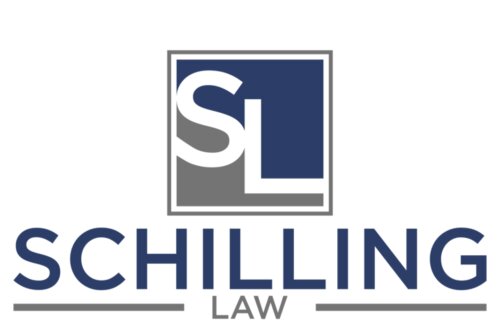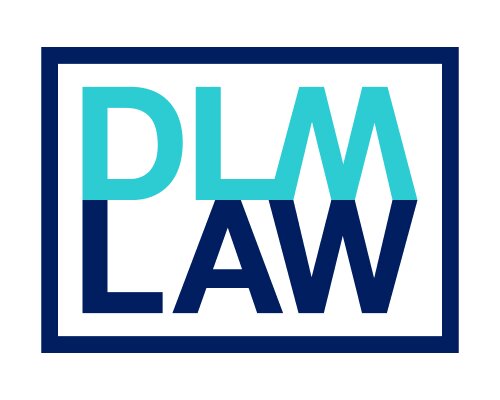Best Accounting & Auditing Lawyers in Kansas
Share your needs with us, get contacted by law firms.
Free. Takes 2 min.
Or refine your search by selecting a city:
List of the best lawyers in Kansas, United States
About Accounting & Auditing Law in Kansas, United States
Accounting and auditing are essential functions for any business or organization, ensuring financial integrity and compliance with state and federal regulations. In Kansas, the field of accounting and auditing is governed by a combination of state laws, federal statutes, and generally accepted accounting principles. Accountants, auditors, and businesses must adhere to stringent guidelines to maintain transparency, prevent fraud, and comply with tax and reporting obligations.
The Kansas Board of Accountancy regulates the licensing and practice of Certified Public Accountants (CPAs) within the state. Additionally, various federal rules such as those from the Securities and Exchange Commission (SEC) and the Internal Revenue Service (IRS) can influence accounting and auditing practices. Whether you are running a small business, part of a nonprofit, or an individual taxpayer, understanding your rights and responsibilities in this area is essential.
Why You May Need a Lawyer
There are several reasons why you might require legal assistance related to accounting and auditing in Kansas:
- If you are being audited by the IRS or the Kansas Department of Revenue.
- When facing allegations of financial misconduct, fraud, or embezzlement.
- If your business is subject to a regulatory investigation regarding financial reporting.
- When establishing, buying, or selling a business and ensuring proper financial due diligence.
- If you suspect errors or negligence in the work performed by your accountant or auditor.
- If you need guidance on compliance with evolving accounting standards or tax laws.
- For representation in disputes involving tax liabilities, penalties, or accounting malpractice.
Legal professionals who concentrate on accounting and auditing law can help interpret complex statutes, defend your interests, and ensure compliance with all applicable regulations.
Local Laws Overview
In Kansas, accounting and auditing activities are regulated by both state and federal law. The Kansas Board of Accountancy sets the requirements for CPA licensure, continuing education, and professional conduct. Kansas statutes define the qualifications for becoming a CPA, outline disciplinary procedures, and establish the standards for financial reporting in the state.
In addition, businesses in Kansas must adhere to Kansas state tax laws, which include corporate income tax, Kansas sales tax, and employer withholding requirements. These state-level laws work in conjunction with federal tax principles. Failing to meet these requirements can result in penalties, fines, or legal action.
It is important to understand that Kansas also enforces rules regarding audit trails, retention and disclosure of financial documents, and reporting by nonprofit organizations. Entities subject to audit must comply with GAAP (Generally Accepted Accounting Principles) or, in some cases, GASB (Governmental Accounting Standards Board) standards, depending on the type of entity involved.
Frequently Asked Questions
What is the Kansas Board of Accountancy and what does it do?
The Kansas Board of Accountancy is the state agency responsible for licensing and regulating CPAs, overseeing certification, investigating complaints, and disciplining accountants found in violation of state rules.
Do all accountants in Kansas have to be licensed CPAs?
Not all accountants are required to be CPAs. However, anyone offering services as a Certified Public Accountant or providing audit reports must be licensed by the Kansas Board of Accountancy.
What are the common legal risks involved in accounting and auditing?
Common risks include tax law violations, fraud allegations, accounting errors, and failure to comply with reporting obligations or licensing requirements.
How long must financial records be kept in Kansas?
Businesses are generally required to keep financial records for at least seven years, although requirements may vary depending on the type of document and nature of the business or industry.
What should I do if I am facing an IRS audit in Kansas?
Consider seeking legal or accounting guidance immediately. An experienced professional can help organize your records, communicate with the IRS on your behalf, and protect your rights during the audit process.
Can I sue an accountant for malpractice in Kansas?
Yes. If you suffer a financial loss due to an accountant’s negligence or improper conduct, you may have grounds for a malpractice claim. Consulting a lawyer is important to evaluate your situation.
Is my nonprofit in Kansas required to have an audit?
Some nonprofits are required to conduct audits if they receive substantial government funding or meet certain thresholds. Check state and federal guidelines or consult a professional for your specific circumstances.
What are the penalties for failing to comply with accounting regulations in Kansas?
Penalties may include fines, loss of license, criminal charges, or civil lawsuits, depending on the severity and nature of the noncompliance.
How does Kansas law interact with federal accounting standards?
Kansas regulations often reference or incorporate federal standards. Organizations and professionals must comply with both sets of rules where applicable.
Do Kansas businesses need to follow GAAP or other standards?
Most businesses and nonprofit organizations in Kansas must follow GAAP. Certain government entities should follow GASB guidelines. Always confirm which standards apply to your situation.
Additional Resources
If you need guidance or want to learn more about accounting and auditing in Kansas, the following organizations can be helpful:
- Kansas Board of Accountancy - for licensure, regulations, disciplinary actions, and complaints
- Kansas Department of Revenue - for state tax compliance and audit information
- Kansas Society of Certified Public Accountants - for professional development and member resources
- Internal Revenue Service (IRS) - for federal tax regulations and audit guidance
- U.S. Securities and Exchange Commission (SEC) - for corporate accounting regulations
- Local legal aid societies - for assistance with legal representation if you cannot afford an attorney
Next Steps
If you believe you need legal advice on an accounting or auditing matter in Kansas, consider the following steps:
- Gather and organize all relevant documents, including financial records, correspondence, and contracts.
- Identify the specific issue or concern you are facing, such as an audit, compliance problem, or dispute.
- Contact a qualified attorney with experience in accounting or tax law, preferably one familiar with Kansas regulations.
- Consult the Kansas Board of Accountancy or the Kansas Department of Revenue if your issue involves licensure or tax compliance.
- Do not ignore notices from government agencies. Prompt action is critical to protecting your rights and interests.
- If cost is a concern, reach out to local legal aid groups for assistance or referrals.
By taking these steps, you can better navigate the complexities of accounting and auditing law in Kansas and ensure your interests are safeguarded.
Lawzana helps you find the best lawyers and law firms in Kansas through a curated and pre-screened list of qualified legal professionals. Our platform offers rankings and detailed profiles of attorneys and law firms, allowing you to compare based on practice areas, including Accounting & Auditing, experience, and client feedback.
Each profile includes a description of the firm's areas of practice, client reviews, team members and partners, year of establishment, spoken languages, office locations, contact information, social media presence, and any published articles or resources. Most firms on our platform speak English and are experienced in both local and international legal matters.
Get a quote from top-rated law firms in Kansas, United States — quickly, securely, and without unnecessary hassle.
Disclaimer:
The information provided on this page is for general informational purposes only and does not constitute legal advice. While we strive to ensure the accuracy and relevance of the content, legal information may change over time, and interpretations of the law can vary. You should always consult with a qualified legal professional for advice specific to your situation.
We disclaim all liability for actions taken or not taken based on the content of this page. If you believe any information is incorrect or outdated, please contact us, and we will review and update it where appropriate.
Browse accounting & auditing law firms by city in Kansas
Refine your search by selecting a city.









